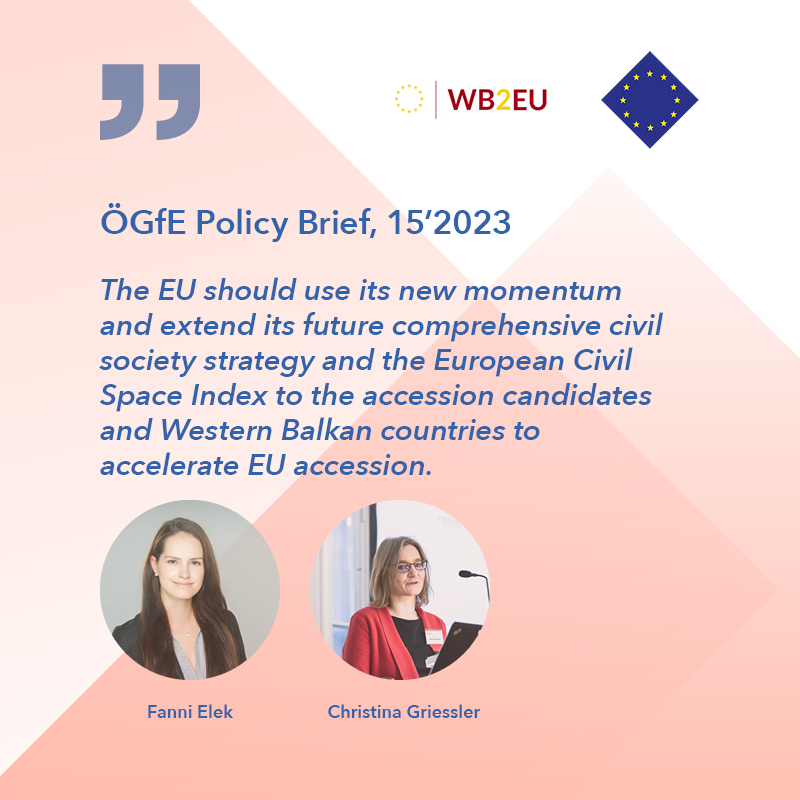Civil society organisations and their “space” in backsliding democracies, Fanni Elek & Christina Griessler, ÖGfE Policy Brief, 15’2023
The Policy Brief addresses the situation of civil society organisations (CSOs) in Hungary and Serbia by analysing the data provided by the Civil Society Organization Sustainability Index (CSOSI). The “shrinking spaces” of CSOs in both countries mean that the governments are trying to vilify these organisations in the media, control their funding basis, narrow their legal basis, and in some cases even intimidate CSOs representatives. Although the political backgrounds of Hungary and Serbia are quite similar, the governments use different strategies to hinder the activities of civil society. The marginalisation of CSOs leads to an exclusive form of democracy, that ignores the needs and demands of the broader public.
Policy Recommendations
- The EU should use its new momentum and extend its future comprehensive civil society strategy and the European Civil Space Index to the accession candidates and Western Balkan countries to accelerate EU accession.
- Rules for applying to and eligibility for funding from governmental and international institutions should be more transparent. The EU needs to reduce or simplify the bureaucracy of the funding application process for civil society organisations in both EU and candidate countries.
- The collaboration of independent media and civil society organisations might be useful to counter the anti-civil society organisations narrative of the government. The EU could support media campaigns to make people aware of the positive roles civil society organisations play in democracies. Furthermore, the international community should publicly report on the vilification, attacks, threats, and harassment of civil society organisations.
Hungary is an example of democratic backsliding within the EU, whereas Serbia is stuck on the European integration path and lacks the capacity to develop a democratic system.
Fanni Elek & Christina Griessler Tweet

Photo: drazenphoto / Envato


